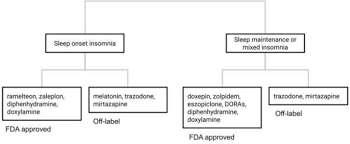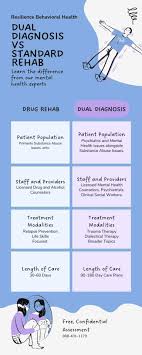The Power of Herbal Remedies for Insomnia
Insomnia is a common sleep disorder that affects millions of people worldwide. It can have a significant impact on our physical health, mental well-being, and overall quality of life. While there are various treatment options available, many individuals are turning to herbal remedies as a natural and holistic approach to managing insomnia.
Lavender
Lavender is known for its calming and relaxing properties. Research has shown that the scent of lavender can help improve sleep quality and reduce anxiety levels. You can use lavender essential oil in a diffuser or add a few drops to your pillow before bedtime.
Valerian Root
Valerian root has been used for centuries as a natural remedy for insomnia. It is believed to increase levels of gamma-aminobutyric acid (GABA) in the brain, which helps regulate nerve cells and calm anxiety. Valerian root is available in various forms, including capsules, teas, and tinctures.
Chamomile
Chamomile is well-known for its calming effects and is often used to promote relaxation and improve sleep quality. Chamomile tea is a popular bedtime drink that can help soothe nerves and prepare the body for restful sleep.
Passionflower
Passionflower is another herb that has been traditionally used to treat insomnia and anxiety. It contains compounds that have sedative effects on the central nervous system, promoting relaxation and reducing insomnia symptoms. Passionflower supplements or teas are available for consumption.
Lemon Balm
Lemon balm is a member of the mint family known for its calming properties. It can help reduce stress, anxiety, and promote better sleep quality. Lemon balm tea or supplements can be beneficial in managing insomnia symptoms.
While herbal remedies can be effective in managing mild to moderate cases of insomnia, it’s essential to consult with a healthcare provider before incorporating them into your routine, especially if you are taking medications or have underlying health conditions.
By harnessing the power of nature’s gifts through herbal remedies, you may find relief from insomnia and experience more restful nights filled with rejuvenating sleep.
Unlocking Natural Sleep: A Guide to Herbal Remedies for Insomnia, Their Efficacy, Safety, and Interactions
- What are the most effective herbal remedies for insomnia?
- Are there any side effects associated with using herbal remedies for insomnia?
- How long does it take for herbal remedies to show results in treating insomnia?
- Can herbal remedies interact with prescription medications for sleep disorders?
- Are herbal remedies safe for long-term use in managing insomnia?
- What is the recommended dosage of herbal remedies for insomnia?
What are the most effective herbal remedies for insomnia?
When seeking effective herbal remedies for insomnia, several options stand out as popular choices known for their calming and sleep-promoting properties. Lavender, revered for its relaxing scent, and valerian root, which boosts GABA levels to induce calmness, are often recommended. Chamomile is a well-known herb that aids in relaxation and sleep quality, while passionflower and lemon balm are also praised for their sedative effects on the nervous system. These herbal remedies offer natural alternatives to traditional sleep aids and can help individuals struggling with insomnia achieve a more restful night’s sleep.
Are there any side effects associated with using herbal remedies for insomnia?
When considering herbal remedies for insomnia, it’s important to be aware of potential side effects that may arise. While herbal remedies are generally considered safe, some individuals may experience adverse reactions or interactions with other medications. For example, certain herbs like valerian root and passionflower can cause drowsiness, dizziness, or digestive issues in some people. Additionally, individuals with allergies to specific plants should exercise caution when using herbal remedies. It is advisable to consult with a healthcare provider or a qualified herbalist before incorporating herbal remedies into your sleep routine to ensure safety and efficacy.
How long does it take for herbal remedies to show results in treating insomnia?
The timeline for herbal remedies to show results in treating insomnia can vary depending on the individual and the specific herb being used. While some people may experience improvements in their sleep quality soon after starting herbal treatment, others may require more time for the effects to become noticeable. Generally, it is recommended to give herbal remedies for insomnia a trial period of at least two to four weeks to assess their effectiveness. Consistency in usage and following recommended dosages are key factors in achieving optimal results with herbal remedies. It’s important to consult with a healthcare provider or an herbalist for personalized guidance on incorporating herbal remedies into your insomnia treatment plan.
Can herbal remedies interact with prescription medications for sleep disorders?
When considering herbal remedies for insomnia, it is crucial to be aware of the potential interactions with prescription medications for sleep disorders. Herbal remedies can interact with prescription medications, leading to adverse effects or reduced efficacy of either treatment. Some herbs may enhance the sedative effects of sleep medications, increasing the risk of excessive drowsiness or other side effects. Conversely, certain herbs may interfere with the absorption or metabolism of prescription drugs, altering their effectiveness. It is essential to consult a healthcare provider before combining herbal remedies with prescription medications to ensure safe and effective management of sleep disorders while minimizing the risk of harmful interactions.
Are herbal remedies safe for long-term use in managing insomnia?
When considering herbal remedies for long-term use in managing insomnia, it is crucial to exercise caution and seek guidance from healthcare professionals. While many herbal remedies are considered safe when used appropriately and in moderation, their long-term effects on the body may vary. Some herbs may interact with medications or underlying health conditions, potentially causing adverse reactions. It is advisable to consult with a healthcare provider or an herbalist to discuss the safety and efficacy of herbal remedies for prolonged use in managing insomnia. Monitoring your response to herbal treatments and adjusting them under professional guidance can help ensure their effectiveness and safety over time.
What is the recommended dosage of herbal remedies for insomnia?
Determining the recommended dosage of herbal remedies for insomnia can vary depending on the specific herb being used and individual factors such as age, weight, and overall health condition. It is crucial to follow the guidance provided on the product packaging or by a healthcare professional. Herbal remedies are not regulated in the same way as pharmaceutical drugs, so it’s essential to start with a low dose and gradually increase if needed while monitoring any potential side effects. Consulting with a qualified healthcare provider or herbalist can help tailor the dosage to your specific needs and ensure safe and effective use of herbal remedies for managing insomnia.



